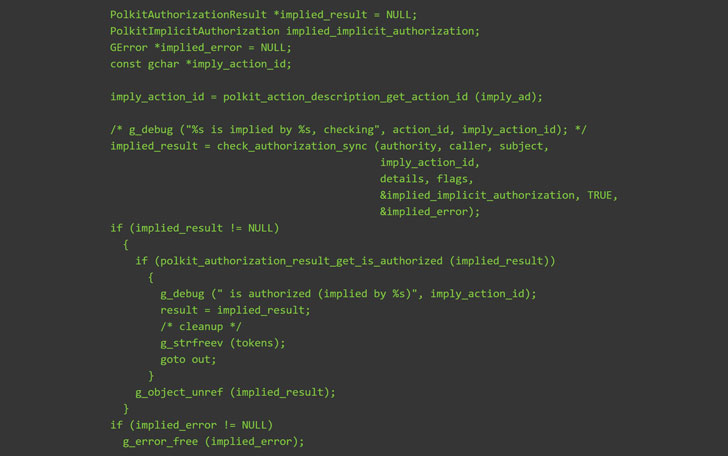7-Year-Old Polkit Flaw Lets Unprivileged Linux Users Gain Root Access
A seven-year-old privilege escalation vulnerability discovered in the polkit system service could be exploited by a malicious unprivileged local attacker to bypass authorization and escalate permissions to the root user.
Tracked as CVE-2021-3560 (CVSS score: 7.8), the flaw affects polkit versions between 0.113 and 0.118 and was discovered by GitHub security researcher Kevin Backhouse, who said the issue was introduced in a code commit made on Nov. 9, 2013. Red Hat’s Cedric Buissart noted that Debian-based distributions, based on polkit 0.105, are also vulnerable.
Polkit (née PolicyKit) is a toolkit for defining and handling authorizations in Linux distributions, and is used for allowing unprivileged processes to communicate with privileged processes.
“When a requesting process disconnects from dbus-daemon just before the call to polkit_system_bus_name_get_creds_sync starts, the process cannot get a unique uid and pid of the process and it cannot verify the privileges of the requesting process,” Red Hat said in an advisory. “The highest threat from this vulnerability is to data confidentiality and integrity as well as system availability.”
RHEL 8, Fedora 21 (or later), Debian “Bullseye,” and Ubuntu 20.04 are some of the popular Linux distributions impacted by the polkit vulnerability. The issue has been mitigated in version 0.119, which was released on June 3.

In killing the command, it causes an authentication bypass because polkit mishandles the terminated message and treats the request as though it came from a process with root privileges (UID 0), thereby immediately authorizing the request.
Users are encouraged to update their Linux installations as soon as possible to remediate any potential risk arising out of the flaw.






